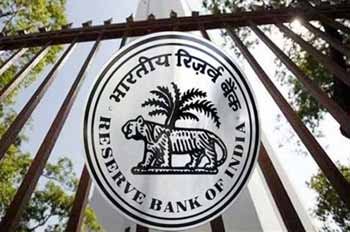The Reserve Bank of India (RBI) has recently taken a significant step by recalling 100 tonnes of gold from Britain. This gold was originally pledged abroad in 1991 to counteract a severe financial crisis. This decision underscores India’s strengthened economic position and strategic foresight in securing its assets domestically.
A Look Back: India’s 1991 Financial Crisis
In 1991, India faced a dire economic crisis characterized by a burgeoning balance of payments problem. To mitigate this crisis, the Indian government took the drastic step of pledging its gold reserves. A total of 46.91 tonnes of gold was sent to the Bank of England and the Bank of Japan to raise $400 million, which was crucial in stabilizing the economy at that time. This move was seen as a last resort to avert a financial catastrophe and marked a pivotal moment in India’s economic history.
Sanjeev Sanyal’s Announcement on X
Renowned economist and member of the Economic Advisory Council to the Prime Minister of India, Sanjeev Sanyal, recently shared on X (formerly Twitter) that the RBI has decided to bring back the gold pledged abroad. He stated, “India will now keep most of its gold in its vaults,” highlighting a shift towards bolstering domestic reserves. This announcement not only reflects India’s improved financial health but also emphasizes the strategic importance of holding gold reserves domestically.
Current Status of India’s Foreign Exchange Reserves
The RBI has reported a substantial increase in India’s foreign exchange reserves, which now include significant gold holdings. According to the latest data:
- As of the end of the last financial year, India’s foreign exchange reserves included 822.10 tonnes of gold.
- In the financial year 2022-23, this figure stood at 794.63 tonnes.
This increase underscores India’s growing economic strength and the pivotal role of gold in its foreign exchange reserves.
Economic Implications of Repatriating Gold
The repatriation of 100 tonnes of gold from Britain carries profound economic implications:
- Strengthening Domestic Reserves: By holding more gold domestically, India enhances its economic security and reduces reliance on foreign banks.
- Boosting Investor Confidence: A robust gold reserve boosts investor confidence, signaling strong economic fundamentals and prudent financial management.
- Economic Sovereignty: Retaining gold within the country underscores economic sovereignty and minimizes external dependencies.
Gold as a Strategic Asset
Gold has always been a critical component of India’s economic strategy. The value of gold held as an asset of the banking department has seen significant appreciation:
- As of March 31, 2023, the value stood at Rs 2,30,733.95 crore.
- By March 31, 2024, this value increased by 19.06% to Rs 2,74,714.27 crore.
This appreciation not only reflects the rising global gold prices but also the strategic acquisitions made by the RBI and other central banks.
Factors Driving the Increase in Gold Prices
Several factors contribute to the rise in gold prices:
- Geopolitical Conflicts: Ongoing geopolitical tensions, especially in West Asia, have led to increased demand for gold as a safe-haven asset.
- Central Bank Purchases: Many central banks, including the RBI, have been actively purchasing gold, driving up demand and prices.
- Rising Global Demand: The global demand for physical gold has been on an upward trajectory, contributing to the price surge.
Global Trends in Gold Reserves
Globally, central banks are increasing their gold reserves as a hedge against currency volatility and geopolitical risks. This trend is evident in:
- Currency Volatility: Gold serves as a stable store of value amidst fluctuating currency values.
- Geopolitical Risks: In times of political uncertainty, gold is perceived as a safe investment.
India’s Strategic Move to Secure Gold Domestically
The decision to repatriate gold signifies a strategic move to secure India’s economic future. By keeping its gold reserves within the country, India is better positioned to respond to global financial uncertainties and domestic economic challenges. This move aligns with global trends where countries are increasingly prioritizing economic self-reliance and security.
The RBI’s decision to call back 100 tonnes of gold from Britain marks a significant milestone in India’s economic journey. This move not only reflects the country’s improved economic stability but also underscores the importance of gold as a strategic asset. With increasing foreign exchange reserves and rising gold values, India is well-positioned to navigate future economic challenges. The repatriation of gold symbolizes a broader strategy of economic self-reliance and resilience, reinforcing India’s position on the global economic stage.














